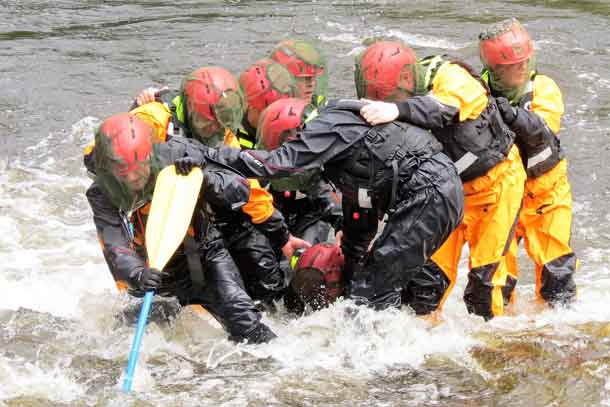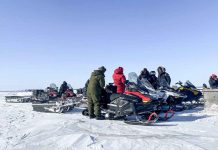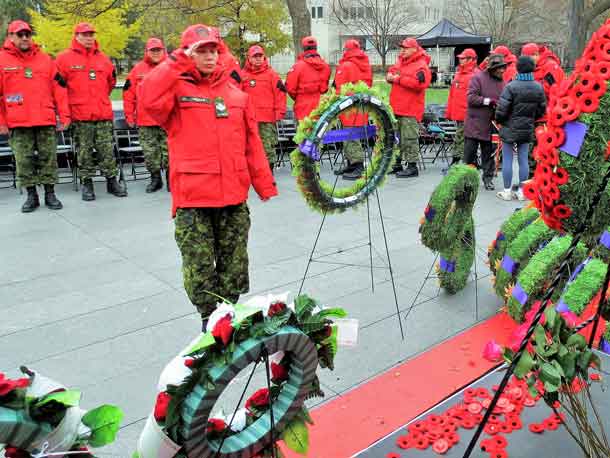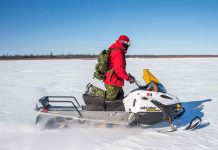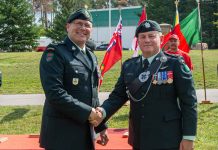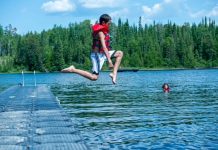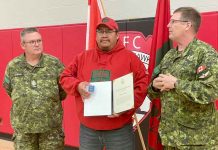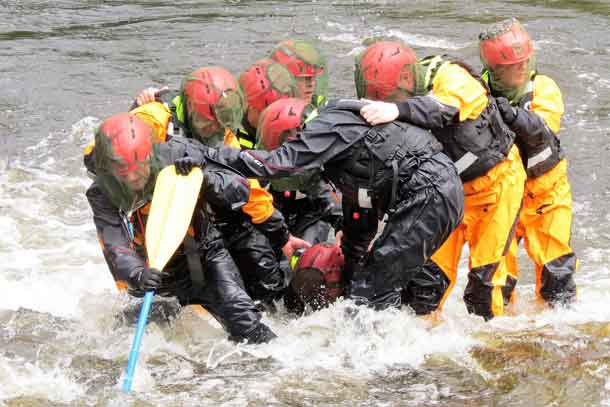
By Peter Moon
OTTAWA – A group of Canadian Amy instructors and staff from the headquarters of the 3rd Canadian Ranger Patrol Group have completed a demanding swift water rescue training course to acquire white water lifesaving skills that they will take to the First Nations of Northern Ontario.
“There were a couple of reasons for the training,” said Major Douglas Ferguson, 3 CRPG’s deputy commanding officer, “The first is so the instructors can get the skills they need to pass on to the Canadian Rangers in the North. The second one is to build confidence in the instructors, so they are very confident when they are on the land and water up there.”
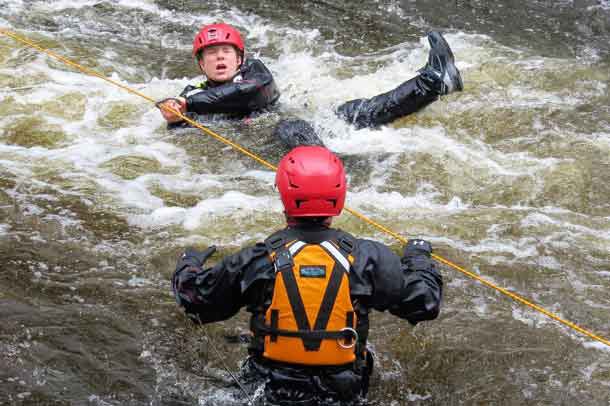
The Far North of Ontario has the highest number of Indigenous deaths by drowning in Canada. The number is high because the Far North has one of the largest Indigenous populations in Canada and because few people learn to swim in the cold waters during the brief summers. People also spend a great deal of time on the numerous rivers and lakes.
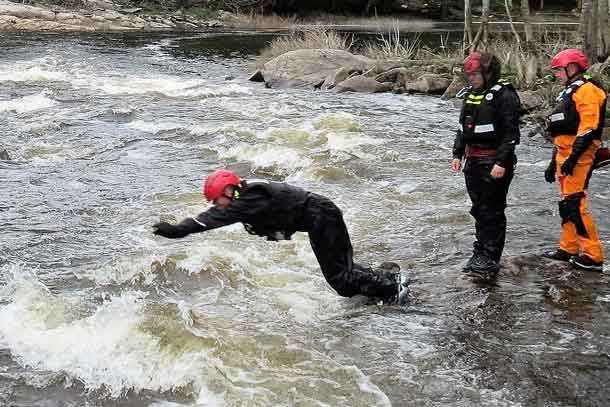
Army instructors travel on a regular basis from the headquarters of 3 CRPG at Canadian Forces Base Borden, near Barrie, to provide a range of training, including water safety, to the 630 Canadian Rangers in 23 First Nations across the Far North of Ontario. The instructors travel regularly by boat and frequently encounter swift water and white water conditions.
The swift water training they took was done over three days on the Shadow River, downstream from the Magnetawan Falls, north of Parry Sound.
“I’m not an avid swimmer and, yes, I was nervous,” said Warrant Officer Dan Stortz, an army instructor. “I was surprised by the power of the water. I banged my knee on rocks numerous times and that was true of most of the people on the course. It was hard on the body and it was mentally challenging. But once you knew what you were doing it was a whole lot easier. I’m glad I did it. It was an excellent course and I’m going to pass on what I learned to the Rangers.”
The soldiers learned to recognize the depth and strength of the fast moving water and how to use it to reach people in need of rescue. They learned how to use hand signals to overcome the noise of the water, various knots and pulley systems, rope work, and how to work individually and in teams.
“The training taught you how to read the water,” Major Ferguson said. ‘It taught you, for example, to make sure you yourself are safe but still able to get to a person who is trapped in a safe manner and rescue them.
“I was absolutely surprised by the power of the water. It takes control of you. So it’s a matter of working with the water. You do not have any control over it. The only thing you have is being able to judge the best way for that water to take you to where you want to go.”
The ever present black flies and mosquitoes forced the trainees to wear netting over their faces and helmets, even when they were in the water. “The bugs were horrendous,” Major Ferguson said. “I’ve never seen black flies like it before. They were everywhere and everyone got bites.
“But I had a fantastic time. I was a little sore, a little tired when it was all over. But I’d go and do it again tomorrow. It was fun and I learned a lot. The training will be put to good use up North.”
(Sergeant Peter Moon is the public affairs ranger for the 3rd Canadian Ranger Patrol Group at Canadian Forces Base Borden.)

